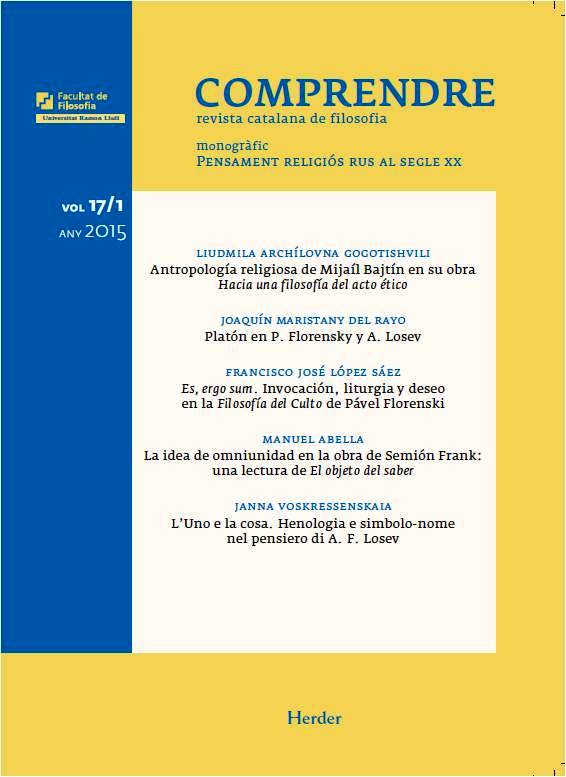Platón en P. Florenski y A. Losev
Article Sidebar

Main Article Content
Este artículo plantea la hipótesis de que la interpretación de Losev sobre Platón en el Ensayo sobre el antiguo símbolo y mitología pudiera leerse como una revisión académica de las tesis de P. Florensky; y obviamente de las formalistas, aun después de la revisión, de Natorp. P. Florensky vivió en la experiencia mítica de la idea cristiana; avizoraba en ella la cuarta dimensión de las nuevas ciencias del espacio y del tiempo, la complejidad asombrosa de la imagen y la magia orgánica de las palabras; el desajuste de los dos universos, el celeste y el terrestre, y su reconciliación teúrgica. Su platonismo empírico alcanza sus logros mayores en las esferas cultuales y místicas. El universo espiritual de Losev, en cambio, su Platonismo riguroso, es complementario; si bien no niega ninguna de esas realidades, postula un acceso crítico a ellas y se presta más a fecundas confrontaciones cosmovisionales.
This article raises the hypothesis that the Losev’s understanding on Plato along the Essay on Classical Symbolism and Mythology could be read as an academic revision of the thesis of Fr. Florensky, and also of the formalist ones of Natorp, even after it. Fr. Florensky lived in the mythical experience of the Christian idea glimpsing in it the fourth dimension of the new sciences of space and time, the amazing complexity of the image and the organic magic of the words, the differences between the two worlds, the earthly and heavenly ones, and their teurgical reconciliation. His empirical Platonism gets its greater success in the cult and mystical spheres. The spiritual universe of Losev, based on a strict Platonism, is not contradictory with Florensky’one. Not denying any of these realities, it proposes a critical access to them and allows them to face more productive confrontations.
Article Details
Copyright
The journal Comprendre is published under Creative Commons license Attribution-Noncommercial-ShareAlike (by-nc-sa): Commercial use of the original work or any derived works is not permitted, and distribution of such works must be under a license equal that regulates the original work.